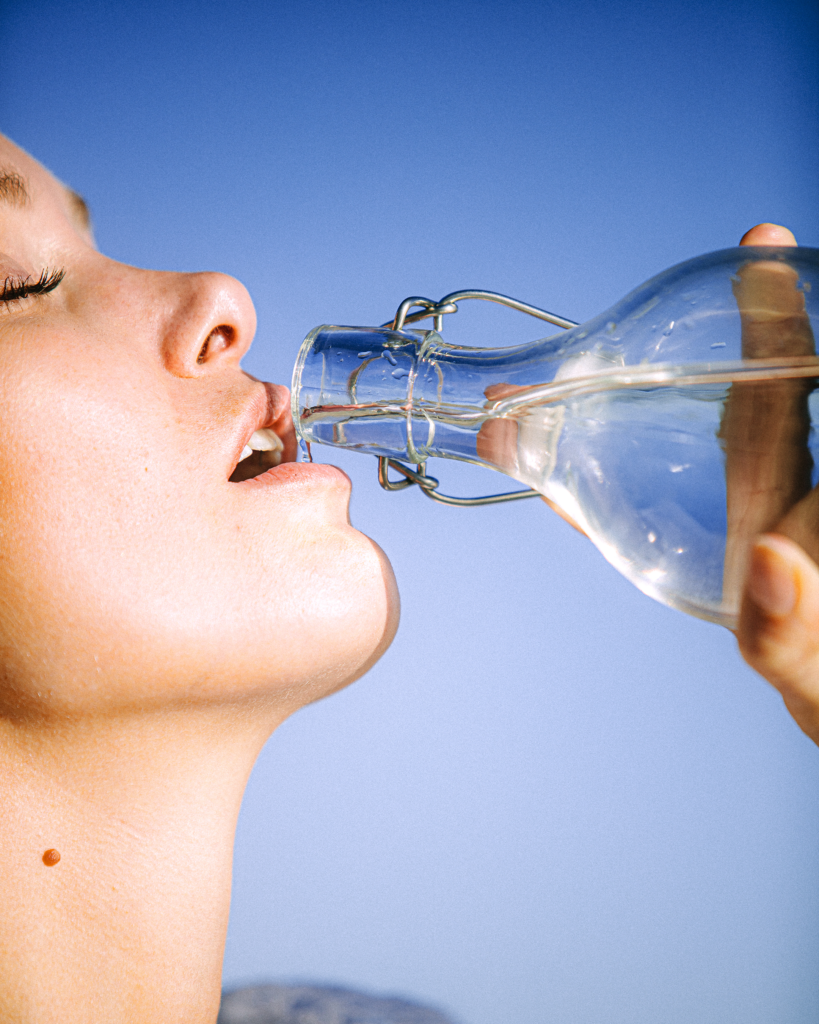You often hear how vital it is to stay hydrated. Our bodies are 60% water, and water is essential for digestion, waste disposal, temperature regulation, and brain function.
The most crucial component for good health and essential to life is water!
Men should drink 13 glasses of water each day, while women should drink 9 cups. Your age, whether you’re pregnant, engage in physical activity, live in a warm climate, and other factors all affect how much water you should consume.
Not all of that fluid intake needs to be water. You should also include the following whole, nutrient-dense foods and liquids in your fluid intake:
Tea
Coffee
sparkling water
Kombucha
Alcohol, on the other hand, dehydrates and does not qualify as fluid. Although it counts, soda is not a good option.
What Makes Water Important?
Perhaps the single most crucial thing you can do for your body is to drink water, which has positive effects on our health. Your body actually cannot function without it, making it difficult or even impossible. You must drink enough water to maintain proper hydration since water is used by all of your cells. The softness of your skin, a standard indicator of your level of general hydration, can be maintained when drinking water, even though it may not necessarily moisturize your skin (more on this later).
Because sweating is your body’s method of dissipating heat and lowering your body temperature, it’s crucial for temperature regulation. Additionally, drinking water can enhance focus, vitality, the flexibility of skin, mood, and general health. It can also flush out toxins and lubricate joints.
5 WAYS TO REMAIN HYDRATED
When you first wake up in the morning, sip a full glass of water. For breakfast, prepare a smoothie.Bring a refillable water bottle with you. Set a goal of refilling one full bottle for each meal.
You don’t like plain water, do you? Try a bottle of water mixed soda, club soda, or soda water. Have a substantial salad for lunch or dinner.
Fruits that are High in Hydration
Experts advise eating the following fruits, which are high in water content, to help you stay hydrated:
- Strawberries (91% water content)
- Watermelon (92% water content)
- Cantaloupe (90% water content)
- Grapefruit (91% water content)
- Peach (88% water content)
- Pineapple (87% water content)
- Oranges (87% water content)
- Coconut water (95% water content)
- Raspberries (86% water content)
Best Vegetables for Hydration
Adding additional water (and electrolytes) to your diet can also be as easy and convenient as eating more water-rich vegetables. These are a few examples of year-round and seasonal choices:
- Cucumber (95% water content)
- Zucchini (95% water content)
- Tomatoes (95% water content)
- Cauliflower (92% water content)
- Cabbage (92% water content)
- Iceberg lettuce (96% water content)
- Celery (95% water content)
- Green peppers (94% water content)
- Romaine (95% water content)
- Spinach (92% water content)
Soup is a great alternative food to help you stay hydrated. Experts advise adding some potassium-rich items, such as potatoes, celery, or carrots, to a warm chicken or bone broth. “Keep the salt to a minimum, but a little sodium is good for your hydration.”
You may already be aware that when your body lacks fluid, dehydration results. You might believe that drinking a lot of water will help you feel better soon if you’re dehydrated, but you need also avoid these four items in addition to doing so. –
- Consuming caffeine
- Eating spicy food
- Staying in a room with air conditioning
- Over-exercising
THINGS TO REMEMBER
Observe the color of your urine.. This frequently serves as a reliable measure of hydration. You are likely well hydrated if your urine is a light yellow tint. You probably aren’t drinking enough if your urine is thick and dark yellow.

